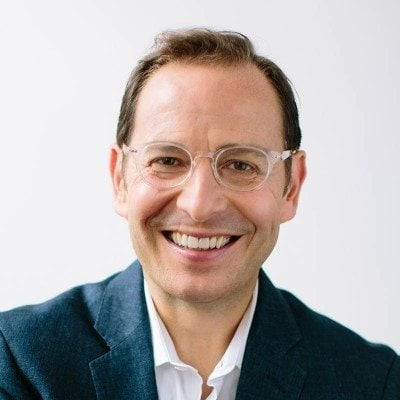In the coming days, representatives from more than 190 countries will descend on Sharm El-Sheikh, Egypt, for the Conference of the Parties, the annual climate summit known as COP.
COP27 is being billed as the “African COP,” as planned discussions are to be centered on the impact of climate change on African nations. Yet I see headline after headline foreshadowing that the summit will likely exclude the voices of those most impacted by global warming — again.
Last year’s COP26 in Glasgow was largely considered a failure, in part because world powers ignored grassroots voices — rural farmers, Indigenous peoples, fisherfolk — who are the least responsible for climate change but bear the brunt of its harms.
It seems history is about to repeat itself.
The United Nations has criticized the Egyptian government for impeding civil society’s full participation in the summit. And a survey of hundreds of African nonprofits found that only 20 percent managed to secure the required badges and even fewer can afford the exorbitant travel costs.
“Despite Egypt being called an African COP, we’re having a very serious challenge and many countries most affected by the climate crisis won’t be represented,” Nigerian activist Goodness Dickson, who conducted the survey, told The Guardian.
I find it painfully ironic that COP27’s theme is “Together for Implementation” when grassroots voices are being ignored and suppressed. For while it is true that we are all in the fight to save our planet together, in this theater of war, some are suffering more casualties than others.
Though the African continent has contributed the least to the climate crisis, it has overwhelmingly been impacted by severe droughts and floods that have taken lives, crippled agricultural systems and displaced whole communities. All 54 African countries combined represent just 4 percent of global greenhouse gas emissions, compared to 19 percent by the U.S. alone.
At AJWS, we are seeing the same dynamic in the countries we serve, where global warming has triggered flash floods in eastern Uganda, exacerbated hunger in Guatemala and decimated ecosystems in Thailand. All combined, these countries are responsible for less than 1 percent of global greenhouse gas emissions.
Taking on the fossil fuel industry, the main culprit in this climate crisis, is a daunting endeavor. And yet we are seeing grassroots activists fighting to slow the impacts of climate change in their own communities — and winning:
- In northeast Cambodia, the central government’s plans for rubber plantations, mining and logging in the Ratanakiri Province threatened more than the region’s pristine land, lakes and rivers — it would have forced 100,000 Indigenous peoples from the place their ancestors had called home for centuries. The Highlanders Association and the Cambodia Indigenous Youth Association, both AJWS grantees, joined three other local groups to fight back. They filed a formal complaint with the International Finance Corporation (IFC), a major investor in the development project, and took their fight to the United Nations. After the IFC intervened, in September 2015, the rubber company agreed to halt development on 10,000 hectares of land, to compensate the villagers for damaged property and to collaborate with village leaders to minimize its impact on the local people.
- In El Salvador, years of heavy metal mining was poisoning the land and its people. Potable water became increasingly scarce as an estimated 90 percent of surface water was polluted by heavy metals, toxic chemicals and waste. As this crisis deepened, a coalition of 12 grassroots organizations supported by AJWS launched a campaign to ban metal mining. After more than a decade of pressuring the government and organizing rallies that drew thousands of people, in 2017, El Salvador became the first country in the world to ban metallic mining.
- For decades, the Kenyan government had been forcibly evicting the Indigenous Ogiek people from their land in the Rift Valley and selling it to lumber companies. In 2009, with the support of AJWS grantee Ogiek Peoples’ Development Program, the group took the government to court to protect their land, culture and way of life. After years of legal setbacks, this past June, the Ogiek people secured a monumental legal victory. The African Court on Human and Peoples’ Rights unanimously dismissed the government’s objections, granted the Ogiek people collective land titles and guaranteed them unhindered use and enjoyment of their land. The court also awarded them reparations in the amount of 157,850,000 Kenyan shillings (about $1.33M U.S.). Now, not only can the Ogiek people continue their vital work of planting hundreds of thousands of trees to help slow the impacts of climate change, but their case sets a legal precedent that can help millions of Indigenous people across the continent.
These are just a handful of the victories that have played out over the years as AJWS continues to support grassroots movements fighting against the devastating effects of the climate crisis.
In moments when our efforts suffer setbacks, I am reminded of these stories and of the importance of focused strategies, perseverance and hope. None of these victories happened quickly — in fact they rarely happen in a year or even two years — yet these climate justice warriors have proven that it is possible to win.
While the world may ignore many of the powerful grassroots voices seeking to be heard on global stages like COP27, I have faith that the climate justice work of our grantee-partners and their allies will one day be recognized. Until then, I’ll keep you posted on their successes and challenges, and I hope you are as invigorated as I am by their victories.






